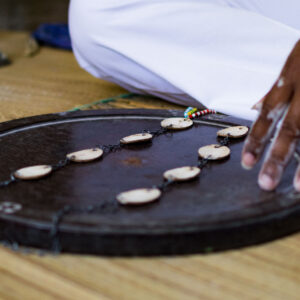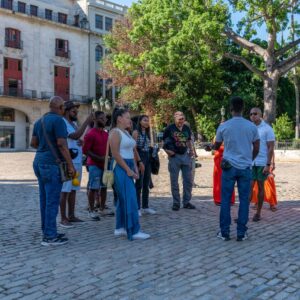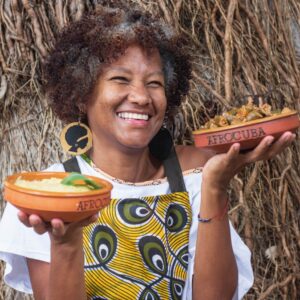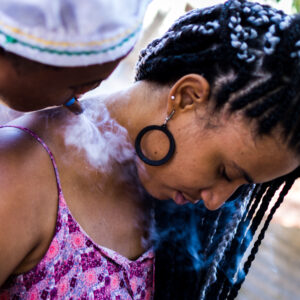
Symbolism and Attributes
Babalu-Aye is often depicted with a staff or crutch, symbolizing his role as a support for those afflicted by illness. His attire is adorned with strips of fabric representing the various ailments and diseases he oversees. Babalu-Aye is commonly associated with the colors brown and rust, reflecting the earthy tones of healing and recovery.
Healer and Protector against Diseases
Babalu-Aye is invoked for healing and protection from diseases, particularly those considered contagious or with severe consequences. Devotees turn to Babalu-Aye for compassion and assistance in times of illness, seeking his guidance to navigate the challenges of health and well-being.
Balancing Affliction and Recovery
Babalu-Aye embodies the delicate balance between affliction and recovery. While he is associated with the potential for illness, he also holds the power to heal and restore health. Devotees recognize the dual nature of Babalu-Aye, acknowledging that affliction is not only a test but an opportunity for healing and spiritual growth.
Cultural Significance and Worship
Babalu-Aye’s influence is deeply ingrained in Yoruba culture, and his worship is expressed through rituals, ceremonies, and artistic representations. The annual festival dedicated to Babalu-Aye, known as the Odo Festival, is a time of prayer, offerings, and purification to seek his blessings and protection from diseases.
Babalu-Aye in the Afro-Caribbean Diaspora
The worship of Babalu-Aye has transcended geographic boundaries through the African diaspora, influencing traditions such as Santería, Candomblé, and Umbanda. In these syncretic practices, Babalu-Aye is often associated with Catholic saints, such as Saint Lazarus or Saint Roch. This syncretic blending reflects the adaptability of Yoruba spirituality in diverse cultural contexts.
Babalu-Aye’s Relationship with Other Orishas
Babalu-Aye shares connections with other Orishas, particularly Yemoja, the mother of all Orishas, and Shango, the Orisha of thunder and lightning. These connections underscore the interconnectedness of health, nature, and the divine forces that influence the well-being of individuals.
Conclusion
Babalu-Aye, the compassionate Orisha of healing and afflictions, serves as a guardian and source of support for those facing health challenges in Yoruba spirituality. His dual nature as both a potential source of affliction and a healer highlights the intricate balance within the realms of health and well-being. As individuals seek solace, healing, and protection, Babalu-Aye’s enduring presence continues to offer compassion and guidance in the face of the complexities of health and the challenges of affliction.



